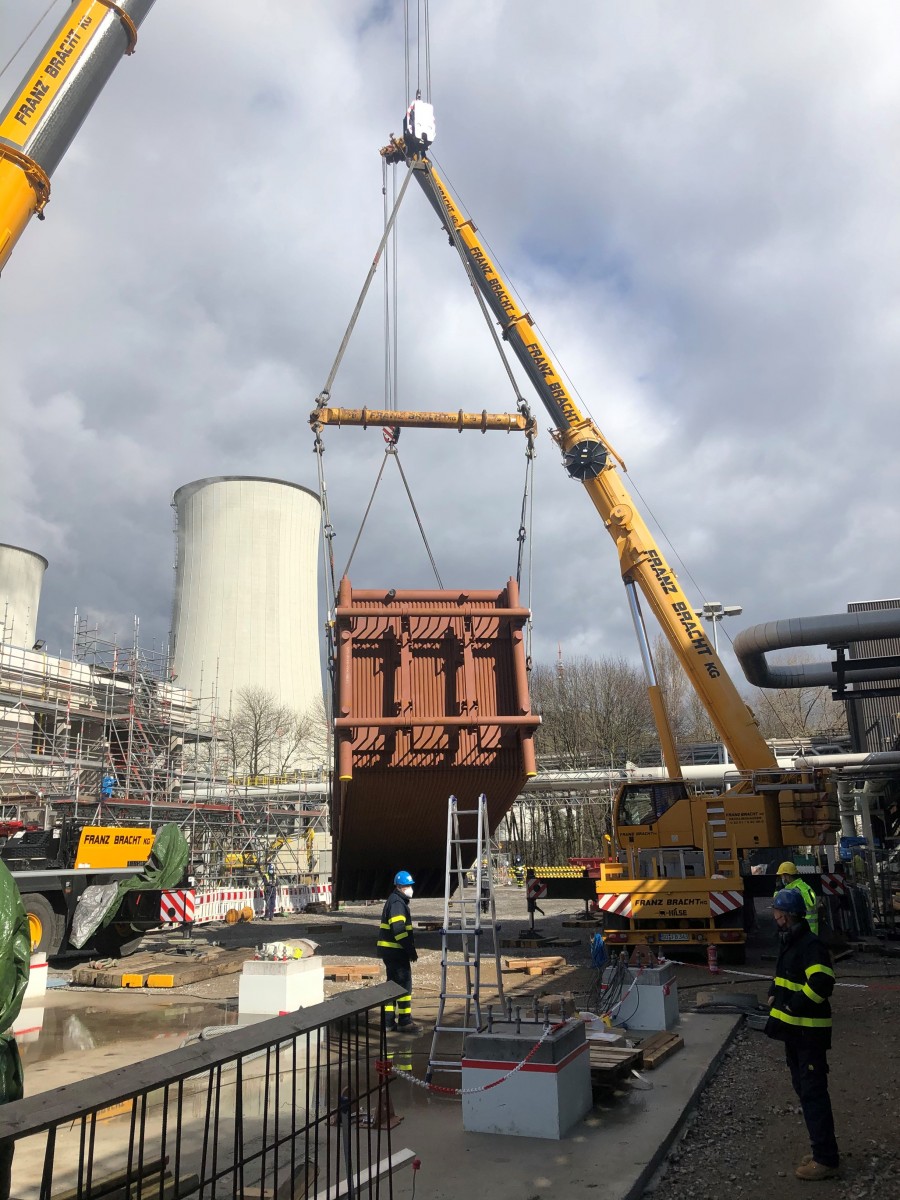Power plant site Gelsenkirchen-Scholven to become an innovative research and training center for hydrogen
Uniper founds the Hydrogen Industrial Research and Training Center (H2iRTC)
The power plant in Gelsenkirchen-Scholven has been an important part of the industrial site for over 100 years. For a time in the mid-1960s, it was the largest coal-fired power plant in Germany. Today it is in the process of being transformed, whereby the coal-fired power generation systems are being replaced with gas-fired systems. Uniper is taking a creative and value-adding approach to the coal phase-out that will also create and safeguard jobs: Gelsenkirchen-Scholven is to become an innovation hub for hydrogen technology.
The name of the project—H2iRTC—stands for the "Hydrogen Industrial Research and Training Center." The center will be specifically designed to address industry needs.
The research and development divisions focus on further developing the technical feasibility of decarbonization and sector coupling technology. "Research needs to be carried out on issues such as converting hydrogen back into electricity, solving electricity generation problems during low wind & low PV periods and using molecular hydrogen in mobility. The aim is to demonstrate and further develop these synergies using applications such as pilot projects that drive technological advancement," says Bernhard Scholtissek, H2iRTC Project Manager and Manager at Uniper Hydrogen GmbH. Gelsenkirchen-Scholven is one of the few sites in Europe that can be connected to two independent hydrogen pipelines. "This is an incredible opportunity for a power plant site," explains Duygu Yavuz-Hofer, Head of Site Development in Scholven. Hydrogen offers enormous potential: It makes it possible to decarbonize conventional technologies and processes, thereby creating carbon-neutral cycles in all sectors.
The advantage for the training part is to participate from the research and development division by enabling hands-on education at hydrogen applications. Basically it is to give further training in hydrogen technology to people who have already completed their initial technical training and are generally already in employment. As part of a training course lasting up to six months depending on their educational background, participants will learn how to use hydrogen resources such as electrolyzers or gas turbines on a technical level. This training will be made available to the industry based on demand and will be practice based. H2iRTC will therefore play a key role in developing skilled workers in the Emscher-Lippe region, maintaining and creating jobs, and giving skilled workers the qualifications and certificates they need to work with hydrogen. A pilot project is expected to start as early as summer 2022, for which Uniper is cooperating with the KWS Powertech Training Center (Kraftwerksschule e.V.) in Essen. "KWS has a very high reputation in the power plant sector. We are happy to put our training opportunities in their hands because they are leading experts in this field," explains Marc-Philipp Hentschel, Site Development Consultant in Scholven.
An extensive test infrastructure will be created as part of H2iRTC, which will enable large-scale hydrogen technologies to be piloted, tested and certified in an industrial environment. "We cannot do this alone, of course, so we are looking for partners," says Duygu Yavuz-Hofer. Companies and research teams will have the opportunity to make full use of the test infrastructure on-site. The details of the research avenue they choose is of secondary importance: The core idea is to advance hydrogen and hydrogen technologies. "We want to contribute to our strategy and move hydrogen technology forward because we believe that using hydrogen will allow us to decarbonize," adds Duygu Yavuz-Hofer. In doing this, Uniper wants to contribute to achieving German climate goals.
At the same time, Gelsenkirchen-Scholven will remain a power plant site, which means that whenever heat, electricity, etc. are generated during research, this energy will be fed into the grid and optimally utilized. As development progresses, the new combined-cycle power plant will start to be operated using green hydrogen.
Uniper is taking a pioneering stance with the H2iRTC project, providing inspiration and perhaps even a blueprint for other power plant sites. The first partners and interested parties have already been made aware of H2iRTC.
If you would also like to become a partner of the Uniper H2iRTC, please contact Bernhard Scholtissek, Project Manager and Manager at Uniper Hydrogen GmbH
Email: [email protected]
Cell: +49 (0) 160 2135632.



